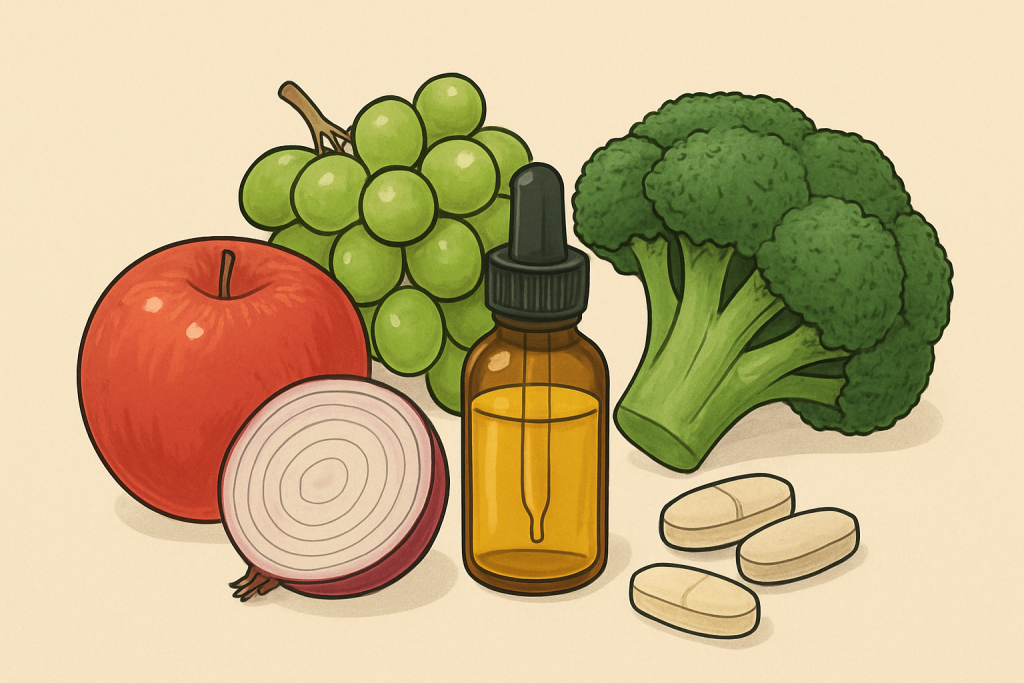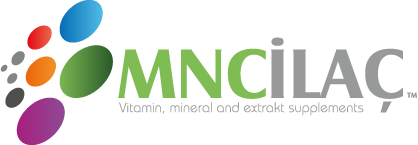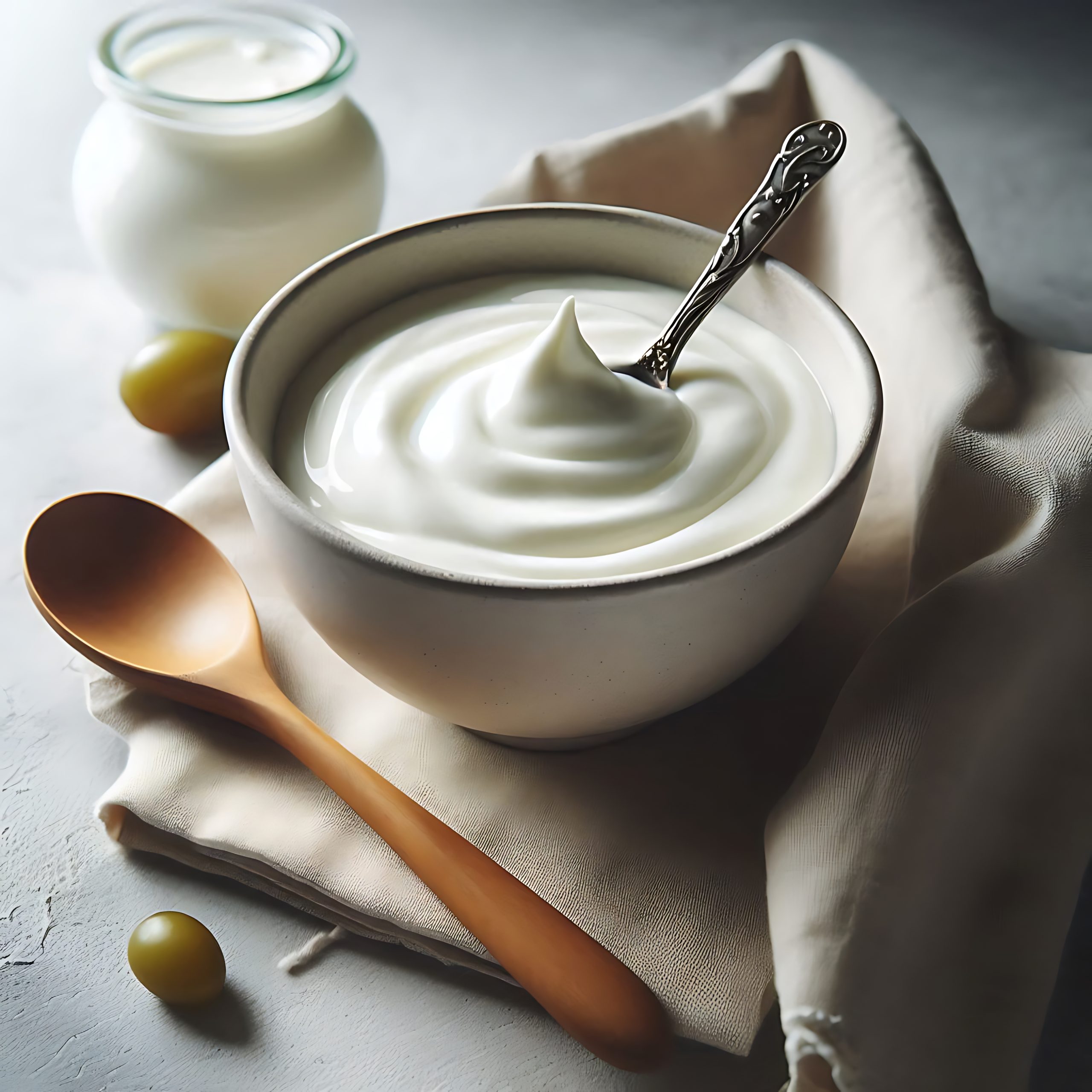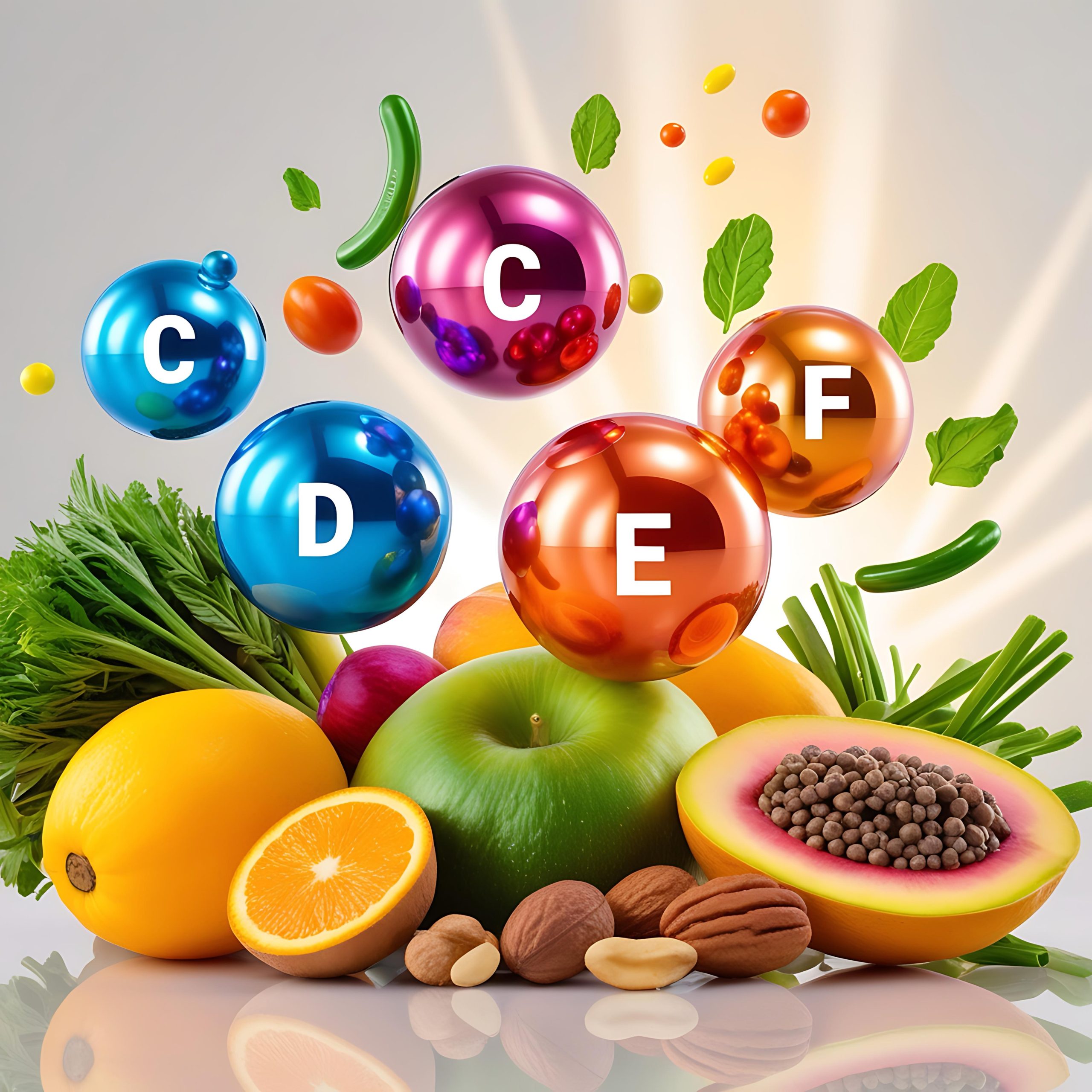Quercetin, one of the most powerful plant-based compounds offered by nature, has become one of the most talked-about flavonoids in the world of healthy living and nutrition in recent years. Known especially for its antioxidant properties, quercetin can benefit our bodies in many ways, from supporting the immune system to fighting inflammation. So, what exactly is quercetin and what are its benefits? Let’s take a closer look.
What Is Quercetin?
Quercetin is a natural antioxidant that belongs to a group of plant compounds called flavonoids. It is found in many foods such as onions, apples, grapes, broccoli, citrus fruits, cherries, and green tea. This compound, which gives plants their color, flavor, and protective properties, also has significant effects on human health.
Benefits of Quercetin
1. Powerful Antioxidant Effect
Quercetin helps prevent oxidative stress by reducing the damage free radicals cause to cells. This, in turn, protects against signs of premature aging and may lower the risk of chronic diseases.
2. Supports the Immune System
Its anti-inflammatory properties help strengthen the immune system. It may also assist in easing symptoms, especially during seasonal allergies.
3. Supports Heart and Vascular Health
Research suggests that quercetin may help regulate blood pressure and improve vascular elasticity, which could play a protective role against cardiovascular diseases.
4. May Help Relieve Allergy Symptoms
By inhibiting histamine release, it may help alleviate allergy symptoms such as runny nose, sneezing, and watery eyes.
5. Supports Athletic Performance
Some studies suggest that quercetin may reduce muscle fatigue and enhance endurance, making it popular among athletes.

Which Foods Contain Quercetin?
The main foods rich in quercetin include:
- Onions (especially red onions)
- Apples (when eaten with the skin)
- Grapes and cherries
- Broccoli, cabbage, peppers
- Green tea and black tea
- Citrus fruits
Quercetin Supplements
Although quercetin can be obtained through diet, it is sometimes used in supplement form as well. However, it is essential to consult a healthcare professional before using high doses, especially for individuals with chronic conditions or those taking regular medications.
Quercetin in the Prevention and Treatment of COVID-19
Epidemiological studies show that a diet rich in flavonoids is closely associated with a lower incidence of various age-related diseases. As a dietary component, quercetin possesses unique biological properties that enhance mental and physical performance and reduce the risk of infections.
Like other flavonoids, quercetin is known to inhibit lipid peroxidation, platelet aggregation, and capillary permeability, as well as stimulate mitochondrial biogenesis. Additionally, it exhibits anticancer, anti-inflammatory, antiallergic, antioxidant, antidiabetic, vasoprotective, antihypertensive, hypolipidemic, and antithrombotic effects.
Scientific Research on Quercetin:
Engin
Author







